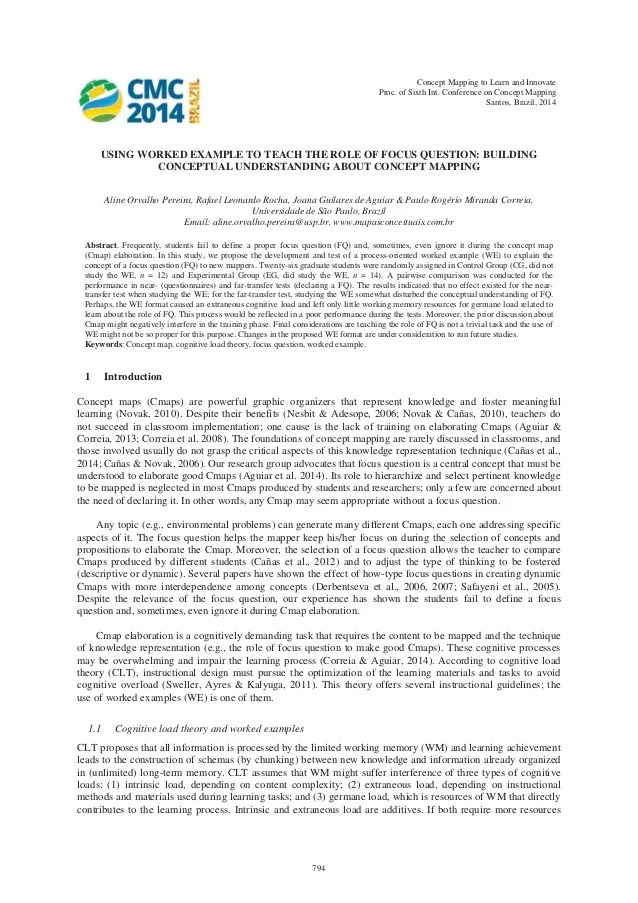Featured
Cognitive Load Theory Sweller 2011
Cognitive Load Theory Sweller 2011. Sweller, van merriënboer, & paas, 2019) is to optimize learning of complex cognitive tasks by transforming contemporary scientific knowledge on the manner in which cognitive structures and processes are organized (i.e.,. Sweller et al., 2019) is one such theory and those aspects of the theory relevant to the current discussion will be.

Cognitive load theory was recently described by british educationalist dylan wiliam as ‘the single most important thing for teachers to know’ (wiliam 2017). Abstract cognitive load theory uses evolutionary theory to consider human cognitive architecture and uses that architecture to devise novel, instructional procedures. Over the last 25 years, cognitive load theory has become one of the world’s leading theories of instructional design.
His Concentration Is On The Reasons That People Have Difficulty Learning Material Of This Nature.
Sweller, ayres, & kalyuga, 2011; Cognitive load theory was recently described by british educationalist dylan wiliam as ‘the single most important thing for teachers to know’ (wiliam 2017). Cognitive load theory (clt) was developed by john sweller in the 1980s.
Advances In Cognitive Load Theory.
Sweller’s theories are best applied in the area of instructional design of cognitively complex or technically challenging material. Over the last 25 years, cognitive load theory has become one of the world’s leading theories of instructional design. Sweller, van merriënboer, & paas, 2019) is to optimize learning of complex cognitive tasks by transforming contemporary scientific knowledge on the manner in which cognitive structures and processes are organized (i.e.,.
The Theory Assumes Two Categories Of Knowledge:
John sweller’s cognitive load theory suggests that people learn in a better way under conditions that align with human cognitive architecture. Paas, renkl, & sweller, 2003; Sweller, ayres, & kalyuga, 2011;
Abstract Cognitive Load Theory Uses Evolutionary Theory To Consider Human Cognitive Architecture And Uses That Architecture To Devise Novel, Instructional Procedures.
Cognitive load theory has many implications in the design of learning materials which must, if they are to be. The theory assumes that knowledge can be. Cognitive load theory (sweller, ayres, & kalyuga, 2011) is an instructional theory based on some aspects of human cognition.
Cognitive Load Theory Aims To Develop Instructional Design Guidelines Based On A Model Of Human Cognitive Architecture.
It is heavily researched by many educational and psychological researchers and is familiar to most practicing instructional designers, especially designers using computer and related technologies. Author links open overlay panel john sweller. In experiment 1, two groups of primary school students (n = 24) were presented with either audio/visual or visual only instructions on how to read a temperature.
Popular Posts
Issues In Political Theory 4Th Edition
- Get link
- X
- Other Apps
Comments
Post a Comment